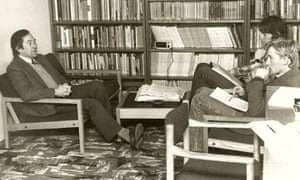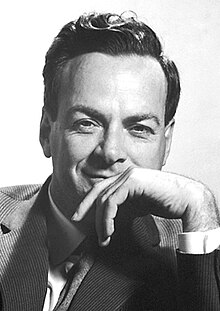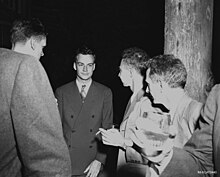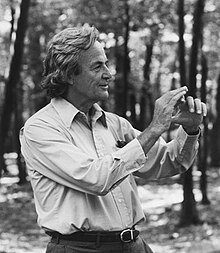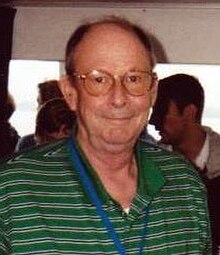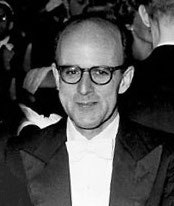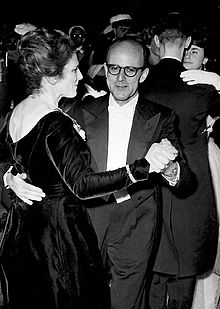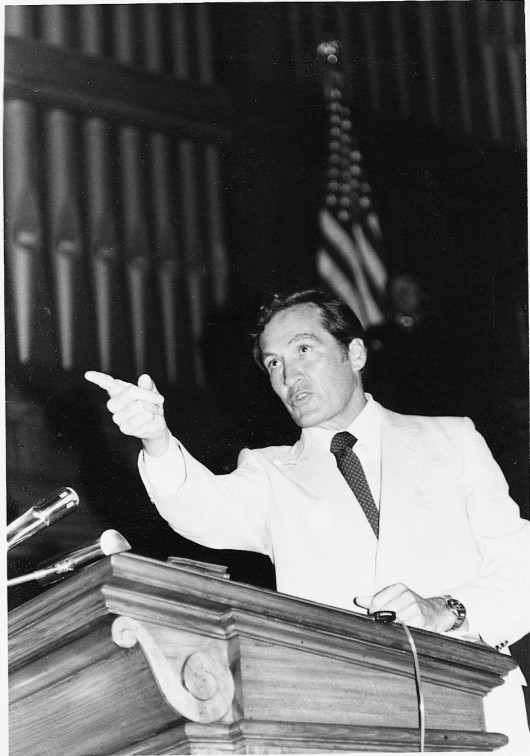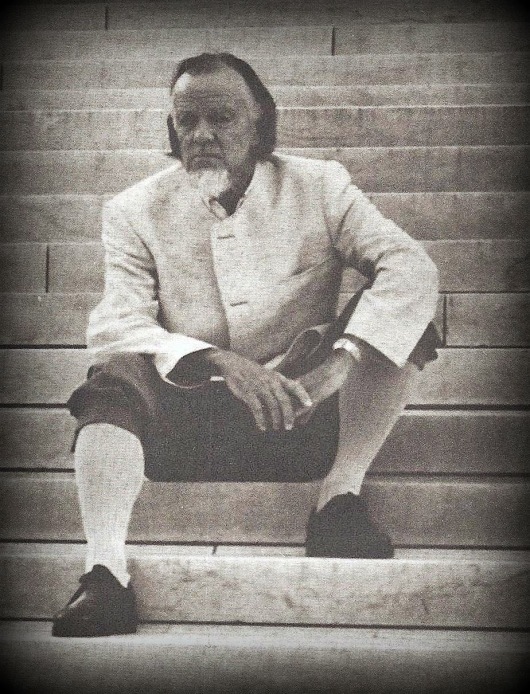On November 21, 2014 I received a letter from Nobel Laureate Harry Kroto and it said:
…Please click on this URL http://vimeo.com/26991975
and you will hear what far smarter people than I have to say on this matter. I agree with them.
Harry Kroto

I have attempted to respond to all of Dr. Kroto’s friends arguments and I have posted my responses one per week for over a year now. Here are some of my earlier posts:
Arif Ahmed, Haroon Ahmed, Jim Al-Khalili, Louise Antony, Sir David Attenborough, Mark Balaguer, Mahzarin Banaji, Horace Barlow, Michael Bate, Sir Patrick Bateson, Simon Blackburn, Colin Blakemore, Ned Block, Pascal Boyer, Sean Carroll, Patricia Churchland, Paul Churchland, Aaron Ciechanover, Noam Chomsky, Brian Cox, Partha Dasgupta, Alan Dershowitz, Jared Diamond, Frank Drake, Hubert Dreyfus, John Dunn, Alan Dundes, Christian de Duve, Ken Edwards, Bart Ehrman, Mark Elvin, Richard Ernst, Stephan Feuchtwang, Sir Raymond Firth, Robert Foley, David Friend, Riccardo Giacconi, Ivar Giaever , Roy Glauber, Rebecca Goldstein, A.C.Grayling, David J. Gross, Brian Greene, Susan Greenfield, Stephen Jay Gould, Stephen F Gudeman, Alan Guth, Jonathan Haidt, Chris Hann, Theodor W. Hänsch, Brian Harrison, Stephen Hawking, Hermann Hauser, Peter Higgs, Robert Hinde, Roald Hoffmann, Bruce Hood, Gerard ‘t Hooft, Caroline Humphrey, Nicholas Humphrey, Herbert Huppert, Sir Andrew Fielding Huxley, Lisa Jardine, Gareth Stedman Jones, Steve Jones, Shelly Kagan, Michio Kaku, Stuart Kauffman, Christof Koch, Masatoshi Koshiba, Lawrence Krauss, Harry Kroto, George Lakoff, Rodolfo Llinas, Seth Lloyd, Elizabeth Loftus, Alan Macfarlane, Rudolph A. Marcus, Colin McGinn, Dan McKenzie, Michael Mann, Peter Millican, Marvin Minsky, Leonard Mlodinow, P.Z.Myers, Yujin Nagasawa, Alva Noe, Douglas Osheroff, David Parkin, Jonathan Parry, Roger Penrose, Saul Perlmutter, Max Perutz, Herman Philipse, Carolyn Porco, Robert M. Price, VS Ramachandran, Lisa Randall, Lord Martin Rees, Colin Renfrew, Alison Richard, C.J. van Rijsbergen, Oliver Sacks, John Searle, Marcus du Sautoy, Simon Schaffer, J. L. Schellenberg, Lee Silver, Peter Singer, Walter Sinnott-Armstrong, Quentin Skinner, Ronald de Sousa, Victor Stenger, John Sulston, Barry Supple, Leonard Susskind, Raymond Tallis, Max Tegmark, Michael Tooley, Neil deGrasse Tyson, Martinus J. G. Veltman, Craig Venter, .Alexander Vilenkin, Sir John Walker, James D. Watson, Frank Wilczek, Steven Weinberg, and Lewis Wolpert,
Daniel Dennett
| Daniel Dennett | |
|---|---|
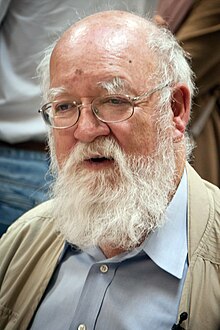 |
|
| Born | Daniel Clement Dennett III March 28, 1942 Boston, Massachusetts, U.S. |
| Alma mater | Harvard University (A.B.) Hertford College, Oxford (D.Phil.) |
| Awards | Jean Nicod Prize (2001) |
| Era | 20th/21st-century philosophy |
| Region | Western philosophy |
| School | Analytic philosophy |
|
Main interests
|
Philosophy of mind Philosophy of biology Philosophy of science Cognitive science Free will |
|
Notable ideas
|
Heterophenomenology Intentional stance Intuition pump Multiple Drafts Model Greedy reductionism Cartesian theater |
| Signature | |
 |
|
Daniel Clement Dennett III (born March 28, 1942)[1][2] is an American philosopher, writer, and cognitive scientist whose research centers on the philosophy of mind, philosophy of science, and philosophy of biology, particularly as those fields relate to evolutionary biology and cognitive science.[3]
He is currently[when?] the co-director of the Center for Cognitive Studies and the Austin B. Fletcher Professor of Philosophy at Tufts University. Dennett is an atheist and secularist, a member of the Secular Coalition for America advisory board,[4] and a member of the Committee for Skeptical Inquiry, as well as an outspoken supporter of the Brights movement. Dennett is referred to as one of the “Four Horsemen of New Atheism“, along with Richard Dawkins, Sam Harris, and the late Christopher Hitchens.[5]
Dennett is a member of the editorial board for The Rutherford Journal.[6]
Early life[edit]
Dennett was born on March 28, 1942 in Boston, Massachusetts, the son of Ruth Marjorie (née Leck) and Daniel Clement Dennett, Jr.[7][8] Dennett spent part of his childhood in Lebanon, where, during World War II, his father was a covert counter-intelligence agent with the Office of Strategic Services posing as a cultural attaché to the American Embassy in Beirut.[9] When he was five, his mother took him back to Massachusetts after his father died in an unexplained plane crash.[10] Dennett’s sister is the investigative journalist Charlotte Dennett.[9] Dennett says that he was first introduced to the notion of philosophy while attending summer camp at age 11, when a camp counselor said to him, “You know what you are, Daniel? You’re a philosopher.”[11]
Dennett graduated from Phillips Exeter Academy in 1959, and spent one year at Wesleyan University before receiving his Bachelor of Arts in philosophy at Harvard University in 1963. At Harvard University he was a student of W. V. Quine. In 1965, he received his Doctor of Philosophy in philosophy at the University of Oxford, where he studied under Gilbert Ryle and was a member of Christ Church college.
Dennett describes himself as “an autodidact—or, more properly, the beneficiary of hundreds of hours of informal tutorials on all the fields that interest me, from some of the world’s leading scientists”.[12]
He is the recipient of a Fulbright Fellowship, two Guggenheim Fellowships, and a Fellowship at the Center for Advanced Study in the Behavioral Sciences.[13] He is a Fellow of the Committee for Skeptical Inquiry and a Humanist Laureate of the International Academy of Humanism.[14] He was named 2004 Humanist of the Year by the American Humanist Association.[15]
In February 2010, he was named to the Freedom From Religion Foundation‘s Honorary Board of distinguished achievers.[16]
In 2012, he was awarded the Erasmus Prize, an annual award for a person who has made an exceptional contribution to European culture, society or social science, “for his ability to translate the cultural significance of science and technology to a broad audience.”[17]
Free will[edit]
While he is a confirmed compatibilist on free will, in “On Giving Libertarians What They Say They Want”—Chapter 15 of his 1978 book Brainstorms,[18] Dennett articulated the case for a two-stage model of decision making in contrast to libertarian views.
The model of decision making I am proposing has the following feature: when we are faced with an important decision, a consideration-generator whose output is to some degree undetermined, produces a series of considerations, some of which may of course be immediately rejected as irrelevant by the agent (consciously or unconsciously). Those considerations that are selected by the agent as having a more than negligible bearing on the decision then figure in a reasoning process, and if the agent is in the main reasonable, those considerations ultimately serve as predictors and explicators of the agent’s final decision.[19]
While other philosophers have developed two-stage models, including William James, Henri Poincaré, Arthur Holly Compton, and Henry Margenau, Dennett defends this model for the following reasons:
- First … The intelligent selection, rejection, and weighing of the considerations that do occur to the subject is a matter of intelligence making the difference.
- Second, I think it installs indeterminism in the right place for the libertarian, if there is a right place at all.
- Third … from the point of view of biological engineering, it is just more efficient and in the end more rational that decision making should occur in this way.
- A fourth observation in favor of the model is that it permits moral education to make a difference, without making all of the difference.
- Fifth—and I think this is perhaps the most important thing to be said in favor of this model—it provides some account of our important intuition that we are the authors of our moral decisions.
- Finally, the model I propose points to the multiplicity of decisions that encircle our moral decisions and suggests that in many cases our ultimate decision as to which way to act is less important phenomenologically as a contributor to our sense of free will than the prior decisions affecting our deliberation process itself: the decision, for instance, not to consider any further, to terminate deliberation; or the decision to ignore certain lines of inquiry.
These prior and subsidiary decisions contribute, I think, to our sense of ourselves as responsible free agents, roughly in the following way: I am faced with an important decision to make, and after a certain amount of deliberation, I say to myself: “That’s enough. I’ve considered this matter enough and now I’m going to act,” in the full knowledge that I could have considered further, in the full knowledge that the eventualities may prove that I decided in error, but with the acceptance of responsibility in any case.[20]
Leading libertarian philosophers such as Robert Kane have rejected Dennett’s model, specifically that random chance is directly involved in a decision, on the basis that they believe this eliminates the agent’s motives and reasons, character and values, and feelings and desires. They claim that, if chance is the primary cause of decisions, then agents cannot be liable for resultant actions. Kane says:
[As Dennett admits,] a causal indeterminist view of this deliberative kind does not give us everything libertarians have wanted from free will. For [the agent] does not have complete control over what chance images and other thoughts enter his mind or influence his deliberation. They simply come as they please. [The agent] does have some control after the chance considerations have occurred.
But then there is no more chance involved. What happens from then on, how he reacts, is determined by desires and beliefs he already has. So it appears that he does not have control in the libertarian sense of what happens after the chance considerations occur as well. Libertarians require more than this for full responsibility and free will.[21]
Evolutionary debate[edit]
Much of Dennett’s work since the 1990s has been concerned with fleshing out his previous ideas by addressing the same topics from an evolutionary standpoint, from what distinguishes human minds from animal minds (Kinds of Minds), to how free will is compatible with a naturalist view of the world (Freedom Evolves).
Dennett sees evolution by natural selection as an algorithmic process (though he spells out that algorithms as simple as long division often incorporate a significant degree of randomness).[24] This idea is in conflict with the evolutionary philosophy of paleontologistStephen Jay Gould, who preferred to stress the “pluralism” of evolution (i.e., its dependence on many crucial factors, of which natural selection is only one).
Dennett’s views on evolution are identified as being strongly adaptationist, in line with his theory of the intentional stance, and the evolutionary views of biologist Richard Dawkins. In Darwin’s Dangerous Idea, Dennett showed himself even more willing than Dawkins to defend adaptationism in print, devoting an entire chapter to a criticism of the ideas of Gould. This stems from Gould’s long-running public debate with E. O. Wilson and other evolutionary biologists over human sociobiology and its descendant evolutionary psychology, which Gould and Richard Lewontin opposed, but which Dennett advocated, together with Dawkins and Steven Pinker.[25] Strong disagreements have been launched against Dennett from Gould and his supporters, who allege that Dennett overstated his claims and misrepresented Gould’s to reinforce what Gould describes as Dennett’s “Darwinian fundamentalism”.[26]
Dennett’s theories have had a significant influence on the work of evolutionary psychologist Geoffrey Miller.
An account of religion and morality[edit]
In Darwin’s Dangerous Idea, Dennett writes that evolution can account for the origin of morality. He rejects the idea of the naturalistic fallacy as the idea that ethics is in some free-floating realm, writing that the fallacy is to rush from facts to values.
In his 2006 book, Breaking the Spell: Religion as a Natural Phenomenon, Dennett attempts to account for religious belief naturalistically, explaining possible evolutionary reasons for the phenomenon of religious adherence. In this book he declares himself to be “a bright“, and defends the term.
He has been doing research into clerics who are secretly atheists and how they rationalize their works. He found what he called a “Don’t ask, don’t tell” conspiracy because believers did not want to hear of loss of faith. That made unbelieving preachers feel isolated but they did not want to lose their jobs and sometimes their church-supplied lodgings and generally consoled themselves that they were doing good in their pastoral roles by providing comfort and required ritual.[27] The research, with Linda LaScola, was further extended to include other denominations and non-Christian clerics.[28]
Other philosophical views[edit]
He has also written about and advocated the notion of memetics as a philosophically useful tool, most recently in his “Brains, Computers, and Minds”, a three-part presentation through Harvard’s MBB 2009 Distinguished Lecture Series.
Dennett has been critical of postmodernism, having said:
Postmodernism, the school of “thought” that proclaimed “There are no truths, only interpretations” has largely played itself out in absurdity, but it has left behind a generation of academics in the humanities disabled by their distrust of the very idea of truth and their disrespect for evidence, settling for “conversations” in which nobody is wrong and nothing can be confirmed, only asserted with whatever style you can muster.[29]
Dennett adopted and somewhat redefined the term “deepity”, originally coined by Miriam Weizenbaum[30] (daughter of computer scientist Joseph Weizenbaum). Dennett used “deepity” for a statement that is apparently profound, but is actually trivial on one level and meaningless on another. Generally, a deepity has two (or more) meanings: one that is true but trivial, and another that sounds profound and would be important if true, but is actually false or meaningless. Examples are “Que sera sera!”, “Beauty is only skin deep!”, “The power of intention can transform your life.”[31] The term has been cited many times.
Personal life[edit]
Dennett married Susan Bell in 1962.[32] They live in North Andover, Massachusetts, and have a daughter, a son, and four grandchildren.[33] He is an avid sailor.[34]
Selected works[edit]
- Darwin’s Dangerous Idea: Evolution and the Meanings of Life (Simon & Schuster; reprint edition 1996) (ISBN 0-684-82471-X)
See also[edit]
- Hurley, Matthew M.; Dennett, Daniel C.; Adams, Jr, Reginald B. (2011). Inside Jokes: Using Humor to Reverse-Engineer the Mind. MIT Press. ISBN 9780262015820.
- Daniel Dennett at the Internet Movie Database
- “Daniel Dennett”. Scientific American Frontiers. PBS. Archived from the original on Jan 24, 2001.
- Searchable bibliography of Dennett’s works
- Marshal, Richard (June 3, 2013). “Intuition Pumping”. 3AM Magazine.
- 1942 births
- Living people
- Writers from Boston
- 20th-century philosophers
- 21st-century philosophers
- American atheists
- American philosophers
- Analytic philosophers
- Atheist philosophers
- Atheism activists
- Cognitive scientists
- Consciousness researchers and theorists
- Phillips Exeter Academy alumni
- Wesleyan University alumni
- Harvard University alumni
- Alumni of Christ Church, Oxford
- Memetics
- Philosophers of mind
- Philosophers of religion
- Tufts University faculty
- Fellows of the Association for the Advancement of Artificial Intelligence
- Jean Nicod Prize laureates
- American non-fiction writers
- Fellows of the American Academy of Arts and Sciences
- American skeptics
- American humanists
- Fellows of the Committee for Skeptical Inquiry
- Erasmus Prize winners
- Critics of postmodernism
- Critics of religions
- Members of the European Academy of Sciences and Arts
- Guggenheim Fellows
- Fulbright Scholars
- Atheism in the United States
- American secularists
- Atheist writers
In the first video below in the 49th clip in this series are his words and my response is below them.
50 Renowned Academics Speaking About God (Part 1)
Another 50 Renowned Academics Speaking About God (Part 2)
A Further 50 Renowned Academics Speaking About God (Part 3)
__
January 12, 2017
Dear Dr. Dennett,
I know how busy you are so I am going to make this as short as possible.
I know that you are good friends with Richard Dawkins and I have noticed how many times he quotes you in his books. It just so happens that I have just got finishing reading back to back his books, The God Delusion, An Appetite for Wonder: The Making of a Scientist, and Brief Candle in the Dark: My Life in Science. I also recently enjoyed watching you on Jonathan Miller’s BBC program Atheism: A Rough History of Disbelief. Francis Schaeffer used to quote Jonathan Miller back in the 1960’s during his teachings at L ‘Abri.
Today I wanted respond to an assertion you made in the very popular You Tube series, 50 Renowned Academics Speaking About God (Part 1):
God is definitely beyond the verification process of science. God is designed to be beyond the verification process of science. The classic adaptation of religion is to create this gulf so that science can’t get anywhere near God. That is true, but science can understand that very fact.
Let me give 4 short responses.
FIRST, Romans 1 points that every person has a God-given conscience instead of them that tells them that God exists. Back on July 8, 2014 I mailed you a letter that went into this further and the interesting factor is that this can be tested by a lie-detector and there was a proposition I made to the FELLOWS of CSICOP concerning that in the 1990’s and I assume you were one of the individuals I contacted back then. I was very honored that many of the them replied (including Antony Flew and Carl Sagan).
SECOND, let me recommend a book by Sean McDowell and Jonathan Marrow, called Is God Just a Human Invention? And Seventeen Other Questions Raised by the New Atheists.
THIRD, John Piippo responds to your assertion by quoting Alvin Plantinga. As you know Plantinga wants to show that there is no good reason to think Christian belief is unjustified, irrational, or unwarranted unless it can be shown that Christian beliefs are false.
John Piippo in his article 50 Renowned Academics (Atheists) Speaking About God – A Review, (August 05, 2011) noted:
- Daniel Dennett (philosophy)
God cannot be scientifically verified. The God of theism is “protected from disproof” because it is defined as “beyond science.” This is an interesting point, and one that can be responded to. See, e.g., Plantinga, who takes the discussion into the arena of “properly basic beliefs.”
FOURTH, there is plenty of evidence from archaeology showing the Bible is true from cover to cover and can be trusted. You stated, “God is definitely beyond the verification process of science.” However, what about the events in the Bible which claim to be the works of God? Can they be tested by a examination of the historical and archaeological records? Here are some of the posts I have done in the past on the subject: 1. The Babylonian Chronicle, of Nebuchadnezzars Siege of Jerusalem, 2. Hezekiah’s Siloam Tunnel Inscription. 3. Taylor Prism (Sennacherib Hexagonal Prism), 4. Biblical Cities Attested Archaeologically. 5. The Discovery of the Hittites, 6.Shishak Smiting His Captives, 7. Moabite Stone, 8. Black Obelisk of Shalmaneser III, 9A Verification of places in Gospel of John and Book of Acts., 9B Discovery of Ebla Tablets. 10. Cyrus Cylinder, 11. Puru “The lot of Yahali” 9th Century B.C.E., 12. The Uzziah Tablet Inscription, 13. The Pilate Inscription, 14. Caiaphas Ossuary, 14 B Pontius Pilate Part 2, 14c. Three greatest American Archaeologists moved to accept Bible’s accuracy through archaeology.,
I have also responded to your statement today in a more lengthy way on my blog http://www.thedailyhatch.org in the post RESPONDING TO HARRY KROTO’S BRILLIANT RENOWNED ACADEMICS!! Daniel Dennett, Philosophy, Tufts University, “God is designed to be beyond the verification process of science.” I hope you take time to take a look. By the way this series was started because your friend HARRY KROTO is the one who referred me to the You Tube video series that featured your quote!!!
Thank you again for your time.
Everette Hatcher, P.O. Box 23416, Little Rock, AR 72221, cell ph 501-920-5733, everettehatcher@gmail.com
PS: Today I checked out of the library your book Darwin’s Dangerous Idea: Evolution and the Meanings of Life, and two years ago I read Charles Darwin, Autobiography (1876), in The Life and Letters of Charles Darwin, ed. Francis Darwin, vol. 1 (London: John Murray, 1888), and just year I listened to the audio book On The Origin Of The Species (Charles/Francis Darwin) Narrated by Professor. Richard Dawkins, Ph.D., So I trying to try and understand your point of view too.
Daniel C. Dennett,
Tufts University
Medford, MA
July 8, 2014
Dear Dr. Dennett,
Recently I read these words that were attributed to you, “There are two ways of looking at the source of meaning there’s the old-fashioned way, which is the trickle-down theory of meaning. Our lives can’t have meaning unless we’re the lesser products of something even more meaningful than we are…The other way of looking at it is the bubble-up theory of meaning, which is that the universe starts off without meaning and there really is no point to it, but it’s possible for life to evolve and it does. We eventually show up–and we are meaning-makers and we care…”
Solomon took a long look at finding meaning in life “under the sun” in the Book of Ecclesiastes without God and he found that it was impossible to be a “meaning-maker” without God in the picture. More on that later.
A couple of months ago I mailed you a letter that contained correspondence I had with Antony Flew and Carl Sagan and I also included some of the material I had sent them from Adrian Rogers and Francis Schaeffer. Did you have a chance to listen to the IS THE BIBLE TRUE? CD yet? I also wanted to let know some more about about Francis Schaeffer. Ronald Reagan said of Francis Schaeffer, “He will long be remembered as one of the great Christian thinkers of our century, with a childlike faith and a profound compassion toward others. It can rarely be said of an individual that his life touched many others and affected them for the better; it will be said of Francis Schaeffer that his life touched millions of souls and brought them to the truth of their creator.”
Thirty years ago the christian philosopher and author Francis Schaeffer (1912-1984) died and on the 10th anniversary of his passing in 1994 I wrote a number of the top evolutionists, humanists and atheistic scholars in the world and sent them a story about Francis Schaeffer in 1930 when he left agnosticism and embraced Christianity. I also sent them a cassette tape with the title “Four intellectual bridges evolutionists can’t cross” by Adrian Rogers (1931-2005) and some of the top scholars who corresponded with me since that time include Ernest Mayr (1904-2005), George Wald (1906-1997), Carl Sagan (1934-1996), Robert Shapiro (1935-2011), Nicolaas Bloembergen (1920-), Brian Charlesworth (1945-), Francisco J. Ayala (1934-) Elliott Sober (1948-), Kevin Padian (1951-), Matt Cartmill (1943-) , Milton Fingerman (1928-), John J. Shea (1969-), , Michael A. Crawford (1938-), (Paul Kurtz (1925-2012), Sol Gordon (1923-2008), Albert Ellis (1913-2007), Barbara Marie Tabler (1915-1996), Renate Vambery (1916-2005), Archie J. Bahm (1907-1996), Aron S “Gil” Martin ( 1910-1997), Matthew I. Spetter (1921-2012), H. J. Eysenck (1916-1997), Robert L. Erdmann (1929-2006), Mary Morain (1911-1999), Lloyd Morain (1917-2010), Warren Allen Smith (1921-), Bette Chambers (1930-), Gordon Stein (1941-1996) , Milton Friedman (1912-2006), John Hospers (1918-2011), and Michael Martin (1932-).
The truth is that I am an evangelical Christian and I have enjoyed developing relationships with skeptics and humanists over the years. Back in 1996 I took my two sons who were 8 and 10 yrs old back then to New York, Washington, Philadelphia, Delaware, and New Jersey and we had dinner one night with Herbert A. Tonne, who was one of the signers of the Humanist Manifesto II. The Late Professor John George who has written books for Prometheus Press was my good friend during the last 10 years of his life. (I still miss him today.) We often ate together and were constantly talking on the phone and writing letters to one another.
It is a funny story how I met Dr. George. As an evangelical Christian and a member of the Christian Coalition, I felt obliged to expose a misquote of John Adams’ I found in an article entitled “America’s Unchristian Beginnings” by the self-avowed atheist Dr. Steven Morris. However, what happened next changed my focus to the use of misquotes, unconfirmed quotes, and misleading attributions by the religious right.
In the process of attempting to correct Morris, I was guilty of using several misquotes myself. Professor John George of the University of Central Oklahoma political science department and coauthor (with Paul Boller Jr.) of the book THEY NEVER SAID IT! set me straight. George pointed out that George Washington never said, “It is impossible to rightly govern the world without God and the Bible.“ I had cited page 18 of the 1927 edition of HALLEY’S BIBLE HANDBOOK. This quote was probably generated by a similar statement that appears in A LIFE OF WASHINGTON by James Paulding. Sadly, no one has been able to verify any of the quotes in Paulding’s book since no footnotes were offered.
After reading THEY NEVER SAID IT! I had a better understanding of how widespread the problem of misquotes is. Furthermore, I discovered that many of these had been used by the leaders of the religious right. I decided to confront some individuals concerning their misquotes. WallBuilders, the publisher of David Barton’s THE MYTH OF SEPARATION, responded by providing me with their “unconfirmed quote” list which contained a dozen quotes widely used by the religious right.
Sadly some of the top leaders of my own religious right have failed to take my encouragement to stop using these quotes and they have either claimed that their critics were biased skeptics who find the truth offensive or they defended their own method of research and claimed the secondary sources were adequate.
I have enclosed that same CD by Adrian Rogers that I sent 20 years ago although the second half does include a story about Charles Darwin‘s journey from the position of theistic evolution to agnosticism. Here are the four bridges that Adrian Rogers says evolutionists can’t cross in the CD “Four Bridges that the Evolutionist Cannot Cross.” 1. The Origin of Life and the law of biogenesis. 2. The Fixity of the Species. 3.The Second Law of Thermodynamics. 4. The Non-Physical Properties Found in Creation.
In the first 3 minutes of the CD is the hit song “Dust in the Wind.” In the letter 20 years ago I gave some of the key points Francis Schaeffer makes about the experiment that Solomon undertakes in the book of Ecclesiastes to find satisfaction by looking into learning (1:16-18), laughter, ladies, luxuries, and liquor (2:1-3, 8, 10, 11), and labor (2:4-6, 18-20).
I later learned this book of Ecclesiastes was Richard Dawkins’ favorite book in the Bible. Schaeffer noted that Solomon took a look at the meaning of life on the basis of human life standing alone between birth and death “under the sun.” This phrase UNDER THE SUN appears over and over in Ecclesiastes. The Christian Scholar Ravi Zacharias noted, “The key to understanding the Book of Ecclesiastes is the term UNDER THE SUN — What that literally means is you lock God out of a closed system and you are left with only this world of Time plus Chance plus matter.” No wonder Ecclesiastes is Richard Dawkins’ favorite book of the Bible!
Here the first 7 verses of Ecclesiastes followed by Schaeffer’s commentary on it:
The words of the Preacher, the son of David, king in Jerusalem. Vanity of vanities, says the Preacher, vanity of vanities! All is vanity. What does man gain by all the toil at which he toils under the sun? A generation goes, and a generation comes, but the earth remains forever. The sun rises, and the sun goes down, and hastens to the place where it rises. The wind blows to the south and goes around to the north; around and around goes the wind, and on its circuits the wind returns. All streams run to the sea, but the sea is not full; to the place where the streams flow, there they flow again.
Solomon is showing a high degree of comprehension of evaporation and the results of it. (E.O.Wilson has marveled at Solomon’s scientific knowledge of ants that was only discovered in the 1800’s.) Seeing also in reality nothing changes. There is change but always in a set framework and that is cycle. You can relate this to the concepts of modern man. Ecclesiastes is the only pessimistic book in the Bible and that is because of the place where Solomon limits himself. He limits himself to the question of human life, life under the sun between birth and death and the answers this would give.
Solomon doesn’t place man outside of the cycle. Man doesn’t escape the cycle. Man is in the cycle. Birth and death and youth and old age.
There is no doubt in my mind that Solomon had the same experience in his life that I had as a younger man (at the age of 18 in 1930). I remember standing by the sea and the moon arose and it was copper and beauty. Then the moon did not look like a flat dish but a globe or a sphere since it was close to the horizon. One could feel the global shape of the earth too. Then it occurred to me that I could contemplate the interplay of the spheres and I was exalted because I thought I can look upon them with all their power, might, and size, but they could contempt nothing. Then came upon me a horror of great darkness because it suddenly occurred to me that although I could contemplate them and they could contemplate nothing yet they would continue to turn in ongoing cycles when I saw no more forever and I was crushed.
_______________
You are an atheist and you have a naturalistic materialistic worldview, and this short book of Ecclesiastes should interest you because the wisest man who ever lived in the position of King of Israel came to THREE CONCLUSIONS that will affect you.
FIRST, chance and time have determined the past, and they will determine the future. (Ecclesiastes 9:11-13)
These two verses below take the 3 elements mentioned in a naturalistic materialistic worldview (time, chance and matter) and so that is all the unbeliever can find “under the sun” without God in the picture. You will notice that these are the three elements that evolutionists point to also.
Ecclesiastes 9:11-12 is following: I have seen something else under the sun: The race is not to the swift or the battle to the strong, nor does food come to the wise or wealth to the brilliant or favor to the learned; but time and chance happen to them all. Moreover, no one knows when their hour will come: As fish are caught in a cruel net, or birds are taken in a snare, so people are trapped by evil times that fall unexpectedly upon them.
SECOND, Death is the great equalizer (Eccl 3:20, “All go to the same place; all come from dust, and to dust all return.”)
THIRD, Power reigns in this life, and the scales are not balanced(Eccl 4:1, 8:15)
Ecclesiastes 4:1-2: “Next I turned my attention to all the outrageous violence that takes place on this planet—the tears of the victims, no one to comfort them; the iron grip of oppressors, no one to rescue the victims from them.” Ecclesiastes 8:14; “ Here’s something that happens all the time and makes no sense at all: Good people get what’s coming to the wicked, and bad people get what’s coming to the good. I tell you, this makes no sense. It’s smoke.”
Solomon had all the resources in the world and he found himself searching for meaning in life and trying to come up with answers concerning the afterlife. However, it seems every door he tries to open is locked. Today men try to find satisfaction in learning, liquor, ladies, luxuries, laughter, and labor and that is exactly what Solomon tried to do too. None of those were able to “fill the God-sized vacuum in his heart” (quote from famous mathematician and philosopher Blaise Pascal). You have to wait to the last chapter in Ecclesiastes to find what Solomon’s final conclusion is.
In 1978 I heard the song “Dust in the Wind” by Kansas when it rose to #6 on the charts. That song told me that Kerry Livgren the writer of that song and a member of Kansas had come to the same conclusion that Solomon had. I remember mentioning to my friends at church that we may soon see some members of Kansas become Christians because their search for the meaning of life had obviously come up empty even though they had risen from being an unknown band to the top of the music business and had all the wealth and fame that came with that. Furthermore, Solomon realized death comes to everyone and there must be something more.
Livgren wrote:
“All we do, crumbles to the ground though we refuse to see, Dust in the Wind, All we are is dust in the wind, Don’t hang on, Nothing lasts forever but the Earth and Sky, It slips away, And all your money won’t another minute buy.”
Take a minute and compare Kerry Livgren‘s words to that of the late British humanist H.J. Blackham:
“On humanist assumptions, life leads to nothing, and every pretense that it does not is a deceit. If there is a bridge over a gorge which spans only half the distance and ends in mid-air, and if the bridge is crowded with human beings pressing on, one after the other they fall into the abyss. The bridge leads nowhere, and those who are pressing forward to cross it are going nowhere….It does not matter where they think they are going, what preparations for the journey they may have made, how much they may be enjoying it all. The objection merely points out objectively that such a situation is a model of futility“( H. J. Blackham, et al., Objections to Humanism (Riverside, Connecticut: Greenwood Press, 1967).
_____________________________________
Both Kerry Livgren and the bass player DAVE HOPE of Kansas became Christians eventually. Kerry Livgren first tried Eastern Religions and DAVE HOPE had to come out of a heavy drug addiction. I was shocked and elated to see their personal testimony on The 700 Club in 1981 and that same interview can be seen on youtube today. Livgren lives in Topeka, Kansas today where he teaches “Diggers,” a Sunday school class at Topeka Bible Church. DAVE HOPE is the head of Worship, Evangelism and Outreach at Immanuel Anglican Church in Destin, Florida.
Solomon’s experiment was a search for meaning to life “under the sun.” Then in last few words in the Book of Ecclesiastes he looks above the sun and brings God back into the picture: “The conclusion, when all has been heard, is: Fear God and keep His commandments, because this applies to every person. For God will bring every act to judgment, everything which is hidden, whether it is good or evil.”
The answer to find meaning in life is found in putting your faith and trust in Jesus Christ. The Bible is true from cover to cover and can be trusted.
Now on to the other topic I wanted to discuss with you today. I wanted to write you today for one reason. IS THERE A GOOD CHANCE THAT DEEP DOWN IN YOUR CONSCIENCE you have repressed the belief in your heart that God does exist and IS THERE A POSSIBILITY THIS DEEP BELIEF OF YOURS CAN BE SHOWN THROUGH A LIE-DETECTOR? (Back in the late 1990’s I had the opportunity to correspond with over a dozen members of CSICOP on just this very issue.)
I have a good friend who is a street preacher who preaches on the Santa Monica Promenade in California and during the Q/A sessions he does have lots of atheists that enjoy their time at the mic. When this happens he always quotes Romans 1:18-19 (Amplified Bible) ” For God’s wrath and indignation are revealed from heaven against all ungodliness and unrighteousness of men, who in their wickedness REPRESS and HINDER the truth and make it inoperative. For that which is KNOWN about God is EVIDENT to them and MADE PLAIN IN THEIR INNER CONSCIOUSNESS, because God has SHOWN IT TO THEM,”(emphasis mine). Then he tells the atheist that the atheist already knows that God exists but he has been suppressing that knowledge in unrighteousness. This usually infuriates the atheist.
My friend draws some large crowds at times and was thinking about setting up a lie detector test and see if atheists actually secretly believe in God. He discussed this project with me since he knew that I had done a lot of research on the idea about 20 years ago.
Nelson Price in THE EMMANUEL FACTOR (1987) tells the story about Brown Trucking Company in Georgia who used to give polygraph tests to their job applicants. However, in part of the test the operator asked, “Do you believe in God?” In every instance when a professing atheist answered “No,” the test showed the person to be lying. My pastor Adrian Rogers used to tell this same story to illustrate Romans 1:19 and it was his conclusion that “there is no such thing anywhere on earth as a true atheist. If a man says he doesn’t believe in God, then he is lying. God has put his moral consciousness into every man’s heart, and a man has to try to kick his conscience to death to say he doesn’t believe in God.”
It is true that polygraph tests for use in hiring were banned by Congress in 1988. Mr and Mrs Claude Brown on Aug 25, 1994 wrote me a letter confirming that over 15,000 applicants previous to 1988 had taken the polygraph test and EVERYTIME SOMEONE SAID THEY DID NOT BELIEVE IN GOD, THE MACHINE SAID THEY WERE LYING.
It had been difficult to catch up to the Browns. I had heard about them from Dr. Rogers’ sermon but I did not have enough information to locate them. Dr. Rogers referred me to Dr. Nelson Price and Dr. Price’s office told me that Claude Brown lived in Atlanta. After writing letters to all 9 of the entries for Claude Brown in the Atlanta telephone book, I finally got in touch with the Browns.
Adrian Rogers also pointed out that the Bible does not recognize the theoretical atheist. Psalms 14:1: The fool has said in his heart, “There is no God.” Dr Rogers notes, “The fool is treating God like he would treat food he did not desire in a cafeteria line. ‘No broccoli for me!’ ” In other words, the fool just doesn’t want God in his life and is a practical atheist, but not a theoretical atheist. Charles Ryrie in the The Ryrie Study Bible came to the same conclusion on this verse.
Here are the conclusions of the experts I wrote in the secular world concerning the lie detector test and it’s ability to get at the truth:
Professor Frank Horvath of the School of Criminal Justice at Michigan State University has testified before Congress concerning the validity of the polygraph machine. He has stated on numerous occasions that “the evidence from those who have actually been affected by polygraph testing in the workplace is quite contrary to what has been expressed by critics. I give this evidence greater weight than I give to the most of the comments of critics” (letter to me dated October 6, 1994).
There was no better organization suited to investigate this claim concerning the lie detector test than the Committee for the Scientific Investigation of Claims of the Paranormal (CSICOP). This organization changed their name to the Committe for Skeptical Inquiry in 2006. This organization includes anyone who wants to help debunk the whole ever-expanding gamut of misleading, outlandish, and fraudulent claims made in the name of science. I AM WRITING YOU TODAY BECAUSE YOU ARE ASSOCIATED WITH CSICOP.
I read The Skeptical Review(publication of CSICOP) for several years during the 90’s and I would write letters to these scientists about taking this project on and putting it to the test. Below are some of their responses (15 to 20 years old now):
1st Observation: Religious culture of USA could have influenced polygraph test results.
ANTONY FLEW (formerly of Reading University in England, now deceased, in a letter to me dated 8-11-96) noted, “For all the evidence so far available seems to be of people from a culture in which people are either directly brought up to believe in the existence of God or at least are strongly even if only unconsciously influenced by those who do. Even if everyone from such a culture revealed unconscious belief, it would not really begin to show that — as Descartes maintained— the idea of God is so to speak the Creator’s trademark, stamped on human souls by their Creator at their creation.”
2nd Observation: Polygraph Machines do not work. JOHN R. COLE, anthropologist, editor, National Center for Science Education, Dr. WOLF RODER, professor of Geography, University of Cincinnati, Dr. SUSAN BLACKMORE,Dept of Psychology, University of the West of England, Dr. CHRISTOPHER C. FRENCH, Psychology Dept, Goldsmith’s College, University of London, Dr.WALTER F. ROWE, The George Washington University, Dept of Forensic Sciences, Graduate School of Arts and Sciences.
3rd Observation: The sample size probably was not large enough to apply statistical inference. (These gentlemen made the following assertion before I received the letter back from Claude Brown that revealed that the sample size was over 15,000.) JOHN GEOHEGAN, Chairman of New Mexicans for Science and Reason, Dr. WOLF RODER, and Dr WALTER F. ROWE (in a letter dated July 12, 1994) stated, “The polygraph operator for Brown Trucking Company has probably examined only a few hundred or a few thousand job applicants. I would surmise that only a very small number of these were actually atheists. It seems a statistically insignificant (and distinctly nonrandom) sampling of the 5 billion human beings currently inhabiting the earth. Dr. Nelson Price also seems to be impugning the integrity of anyone who claims to be an atheist in a rather underhanded fashion.”
DO YOU HAVE ANY REACTIONS TO ADD TO THESE 7 OBSERVATIONS THAT I GOT 15 YEARS AGO? Thank you again for your time and I know how busy you are.
Everette Hatcher, everettehatcher@gmail.com, http://www.thedailyhatch.org, cell ph 501-920-5733, Box 23416, LittleRock, AR 72221
.
.
BBC The Atheism Tapes – Daniel Dennett
Summary of Alvin Plantinga’s Reformed Epistemology
W.K. Clifford once said that “it is wrong always and everywhere to believe something on insufficient evidence.” This is the heart of evidentialsim or theological rationalism. And it is precisely this view that Alvin Plantinga (AP) challenges with his reformed epistemology which develops a model of “warranted Christian belief”. He has two projects: one public and one Christian.
Public Project – Plantinga first distinguishes between de facto objections (aimed at showing the Christian faith to be false) and de jure objections (those aimed at undermining Christian belief even if true). Even though these can be distinguished, AP thinks argues that in the cases of Christian theistic belief there is no de jure objection independent of a de facto objection.
de jure to Theistic belief – According to the evidentialist, even if it is true that God exists, one is unjustified and irrational for believing this apart from evidence. Only beliefs that are properly basic (those that are self-evident or incorrigible) or inferred from properly basic beliefs do not require evidence. But AP wants to ask why belief in God can’t be a properly basic belief? For he sees no good reason to exclude this possibility. First, there are other things we believe without evidence that we seem entirely justified in doing so without appealing to evidence (i.e., the world is older than five minutes). Second, what evidence is there that only propositions that are self evident and incorrigible are properly basic? The theory fails its own test. So there is no reason to exclude the possibility of belief in God being Properly Basic.
AP argues that Christians are not only within their epistemic rights (Justification) in believing God exists, but also that they can know (Warranted) apart from evidence. The key to Plantinga’s Reformed Epistemology is warrant, “the property which turns mere true belief into knowledge when possessed in sufficient degree.” Justification, on AP’s view, is fairly easy to come by—it’s warrant that is important for knowledge. AP appropriates Calvin’s Sensus Divinitatis (or sense of the divine) in order describe the appropriate circumstances / faculty that form the belief that God exists in people. It is within this context that he offers his four criteria for warrant: 1) the cognitive faculties of the person are functioning properly 2) the cognitive environment is appropriate 3) the purpose of the epistemic faculty is aimed at producing true beliefs. 4) the objective probability of a beliefs being true is high. According to AP then, belief in God is properly basic with respect to warrant if God exists. But then the issue of God’s existence is no longer epistemic, but metaphysical or theological (enter arguments from Natural Theology). There is then no de jure objection to theistic belief.
de jure to Christianity – What about to specifically Christian Theism? AP expands his model to include the inner witness of the Holy Spirit. Due to humanity’s fall into sin, there have been disastrous cognitive and affective consequences. So if Christianity is true then belief in it is warranted in the same way mentioned above because belief is produced by the H.S.
Great Pumpkin Objections – the strongest objection to the public project is that it leads to radical relativism. For example, why could Linus’s belief in the Great Pumpkin not be properly basic for him? AP grants that Linus could be justified in his belief, but so what? He is still being lied to—so he possesses no warrant. Moreover, if Christian epistemologists can have belief in God be properly basic for them, then why not voodoo epistemologists? Again, AP will concede that they can within their epistemic rights (justified), but not warranted. So the Son of the Great Pumpkin Objection Fails. At most, all these objections show is that there is no de jure objection to theistic belief in general (e.g., Muslims). That will have to be settled dependent on how successful de facto arguments are against specific religious beliefs.
The Christian Project – while AP’s public project has been successful, his Christian project might need some modification. AP only offers thin evidence here, and his suggestion that if the Christian God exists, then he would want us to know him and would have provided a way for that to occur isn’t a statement that a Christian evidentialist would disagree with. So more insight from Scripture and experience is needed in order to explicate a Christian model of warranted Christian belief. Since the Sensus Divinitatis and the testimony of the H.S. are experientially indistinguishable, we ought to use the testimony of the H.S. (Rom. 8:16) because of Scripture. Also, the H.S. being described as a cognitive faculty outside of people that forms belief in them is off base. Rather, the H.S. is better seen as a form of testimony that provides the appropriate circumstances for a properly basic belief to be formed.
Overall, Alvin Plantinga’s Reformed Epistemology is a helpful (and many think successful) theory of explaining warranted Christian belief.
For more, see Warranted Christian Belief by Alvin Plantinga (Oxford University Press).
Related posts:
FRANCIS SCHAEFFER ANALYZES ART AND CULTURE Part 53 THE BEATLES (Part E, Stg. Pepper’s and John Lennon’s search in 1967 for truth was through drugs, money, laughter, etc & similar to King Solomon’s, LOTS OF PICTURES OF JOHN AND CYNTHIA) (Feature on artist Yoko Ono)
The John Lennon and the Beatles really were on a long search for meaning and fulfillment in their lives just like King Solomon did in the Book of Ecclesiastes. Solomon looked into learning (1:12-18, 2:12-17), laughter, ladies, luxuries, and liquor (2:1-2, 8, 10, 11), and labor (2:4-6, 18-20). He fount that without God in the picture all […]
FRANCIS SCHAEFFER ANALYZES ART AND CULTURE Part 52 THE BEATLES (Part D, There is evidence that the Beatles may have been exposed to Francis Schaeffer!!!) (Feature on artist Anna Margaret Rose Freeman )
______________ George Harrison Swears & Insults Paul and Yoko Lucy in the Sky with Diamonds- The Beatles The Beatles: I have dedicated several posts to this series on the Beatles and I don’t know when this series will end because Francis Schaeffer spent a lot of time listening to the Beatles and talking […]
FRANCIS SCHAEFFER ANALYZES ART AND CULTURE Part 51 THE BEATLES (Part C, List of those on cover of Stg.Pepper’s ) (Feature on artist Raqib Shaw )
The Beatles in a press conference after their Return from the USA Uploaded on Nov 29, 2010 The Beatles in a press conference after their Return from the USA. The Beatles: I have dedicated several posts to this series on the Beatles and I don’t know when this series will end because Francis […]
FRANCIS SCHAEFFER ANALYZES ART AND CULTURE Part 50 THE BEATLES (Part B, The Psychedelic Music of the Beatles) (Feature on artist Peter Blake )
__________________ Beatles 1966 Last interview I have dedicated several posts to this series on the Beatles and I don’t know when this series will end because Francis Schaeffer spent a lot of time listening to the Beatles and talking and writing about them and their impact on the culture of the 1960’s. In this […]
FRANCIS SCHAEFFER ANALYZES ART AND CULTURE Part 49 THE BEATLES (Part A, The Meaning of Stg. Pepper’s Cover) (Feature on artist Mika Tajima)
_______________ The Beatles documentary || A Long and Winding Road || Episode 5 (This video discusses Stg. Pepper’s creation I have dedicated several posts to this series on the Beatles and I don’t know when this series will end because Francis Schaeffer spent a lot of time listening to the Beatles and talking and writing about […]
FRANCIS SCHAEFFER ANALYZES ART AND CULTURE PART 48 “BLOW UP” by Michelangelo Antonioni makes Philosophic Statement (Feature on artist Nancy Holt)
_______________ Francis Schaeffer pictured below: _____________________ I have included the 27 minute episode THE AGE OF NONREASON by Francis Schaeffer. In that video Schaeffer noted, ” Sergeant Pepper’s Lonely Hearts Club Band…for a time it became the rallying cry for young people throughout the world. It expressed the essence of their lives, thoughts and their feelings.” How Should […]
FRANCIS SCHAEFFER ANALYZES ART AND CULTURE Part 47 Woody Allen and Professor Levy and the death of “Optimistic Humanism” from the movie CRIMES AND MISDEMEANORS Plus Charles Darwin’s comments too!!! (Feature on artist Rodney Graham)
Crimes and Misdemeanors: A Discussion: Part 1 ___________________________________ Today I will answer the simple question: IS IT POSSIBLE TO BE AN OPTIMISTIC SECULAR HUMANIST THAT DOES NOT BELIEVE IN GOD OR AN AFTERLIFE? This question has been around for a long time and you can go back to the 19th century and read this same […]
FRANCIS SCHAEFFER ANALYZES ART AND CULTURE PART 46 Friedrich Nietzsche (Featured artist is Thomas Schütte)
____________________________________ Francis Schaeffer pictured below: __________ Francis Schaeffer has written extensively on art and culture spanning the last 2000years and here are some posts I have done on this subject before : Francis Schaeffer’s “How should we then live?” Video and outline of episode 10 “Final Choices” , episode 9 “The Age of Personal Peace and Affluence”, episode 8 […]
FRANCIS SCHAEFFER ANALYZES ART AND CULTURE Part 45 Woody Allen “Reason is Dead” (Feature on artists Allora & Calzadilla )
Love and Death [Woody Allen] – What if there is no God? [PL] ___________ _______________ How Should We then Live Episode 7 small (Age of Nonreason) #02 How Should We Then Live? (Promo Clip) Dr. Francis Schaeffer 10 Worldview and Truth Two Minute Warning: How Then Should We Live?: Francis Schaeffer at 100 Francis Schaeffer […]
FRANCIS SCHAEFFER ANALYZES ART AND CULTURE Part 44 The Book of Genesis (Featured artist is Trey McCarley )
___________________________________ Francis Schaeffer pictured below: ____________________________ Francis Schaeffer “BASIS FOR HUMAN DIGNITY” Whatever…HTTHR Dr. Francis schaeffer – The flow of Materialism(from Part 4 of Whatever happened to human race?) Dr. Francis Schaeffer – The Biblical flow of Truth & History (intro) Francis Schaeffer – The Biblical Flow of History & Truth (1) Dr. Francis Schaeffer […]
_

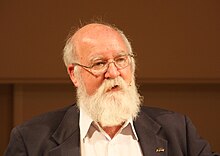
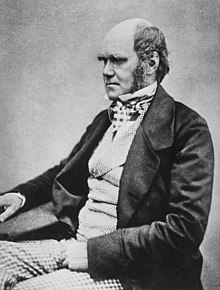

















 The find is known as the Moabite Stone, or the Mesha Inscription, since it was written by Mesha, King of Moab. A missionary named F.A. Klein first discovered the stone in August of 1868 (Edersheim, n.d., p. 109). When he initially saw the black basalt stone, it measured approximately 3.5 feet high and 2 feet wide. Upon learning of Klein’s adventure, a French scholar by the name of Clermont-Ganneau located the antiquated piece of rock, and copied eight lines from the stone. He then had an impression (known as a “squeeze”) made of the writing on its surface. A squeeze is made by placing a soggy piece of paper over the inscription, which then retains the form of the inscription when it dries (Pritchard, 1958b, p. 105). From that point, the details surrounding the stone are not quite as clear. Apparently (for reasons unknown), the Arabs who were in possession of the stone decided to shatter it. [Some have suggested that they thought the stone was a religious talisman of some sort, or that they could get more money selling the stone in pieces. However, LeMaire claims that these reasons are “apocryphal,” and suggests that the Arabs broke it because they hated the Ottomans, who were attempting to purchase the stone (1994, p. 34).] By heating it in fire and then pouring cold water on it, they succeeded in breaking the stone into several pieces. The pieces ended up being scattered, but eventually about two-thirds of the original stone ended up being relocated, and currently reside at the Louvre in Paris (Jacobs and McCurdy, 2002).
The find is known as the Moabite Stone, or the Mesha Inscription, since it was written by Mesha, King of Moab. A missionary named F.A. Klein first discovered the stone in August of 1868 (Edersheim, n.d., p. 109). When he initially saw the black basalt stone, it measured approximately 3.5 feet high and 2 feet wide. Upon learning of Klein’s adventure, a French scholar by the name of Clermont-Ganneau located the antiquated piece of rock, and copied eight lines from the stone. He then had an impression (known as a “squeeze”) made of the writing on its surface. A squeeze is made by placing a soggy piece of paper over the inscription, which then retains the form of the inscription when it dries (Pritchard, 1958b, p. 105). From that point, the details surrounding the stone are not quite as clear. Apparently (for reasons unknown), the Arabs who were in possession of the stone decided to shatter it. [Some have suggested that they thought the stone was a religious talisman of some sort, or that they could get more money selling the stone in pieces. However, LeMaire claims that these reasons are “apocryphal,” and suggests that the Arabs broke it because they hated the Ottomans, who were attempting to purchase the stone (1994, p. 34).] By heating it in fire and then pouring cold water on it, they succeeded in breaking the stone into several pieces. The pieces ended up being scattered, but eventually about two-thirds of the original stone ended up being relocated, and currently reside at the Louvre in Paris (Jacobs and McCurdy, 2002).

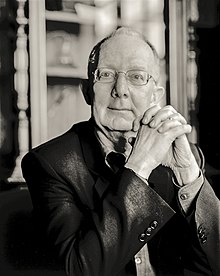

 I’ve learned to
I’ve learned to 
